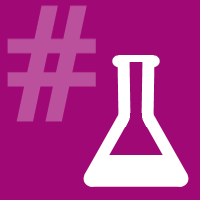Against the definition of types
Science is much more 'sloppy' and 'irrational' than its methodological image.
Paul Feyerabend, Against Method (1975)

Programming languages are a fascinating area because they combine computer science (and logic) with many other disciplines including sociology, human computer interaction and things that cannot be scientifically quantified like intuition, taste and (for better or worse) politics.
When we talk about programming languages, we often treat it mainly as scientific discussion seeking some objective truth. This is not surprising - science is surrounded by an aura of perfection and so it is easy to think that focusing on the core scientific essence (and leaving out everything) else is the right way of looking at programming languages.
However this leaves out many things that make programming languages interesting. I believe that one way to fill the missing gap is to look at philosophy of science, which can help us understand how programming language research is done and how it should be done. I wrote about the general idea in a blog post (and essay) last year. Today, I want to talk about one specific topic: What is the meaning of types?
This blog post is a shorter (less philosophical and more to the point) version of an essay that I submitted to Onward! Essays 2015. If you want to get a quick peek at the ideas in the essay, then continue reading here! If you want to read the full essay (or save it for later), you can get the full version from here.
Published: Thursday, 14 May 2015, 4:46 PM
Tags:
philosophy, research
Read the complete article
Announcing FsLab: Data science package

After over a year of working on FsLab and talking about it at conferences, it is finally time for an official announcement. So, today, I'm excited to announce FsLab - a cross-platform package for doing data science with .NET and Mono.
It is probably not necessary to explain why data science is an important area. We live surrounded by information, but extracting useful knowledge from the vast amounts of data is not an easy task. You have to access data in different formats (JSON-based REST services, XML, CSV files or even HTML tables), you need to deal with missing values, combine and align data from multiple sources and then build visualizations (or reports) to tell the right story.
The goal of FsLab is to make this process easier. FsLab combines the power of F# type providers, the efficiency and robustness of Mono and .NET and the high quality engineering of the open-source ecosystem around F# and C#.
Published: Tuesday, 5 May 2015, 4:55 PM
Tags:
f#, fslab, data science
Read the complete article